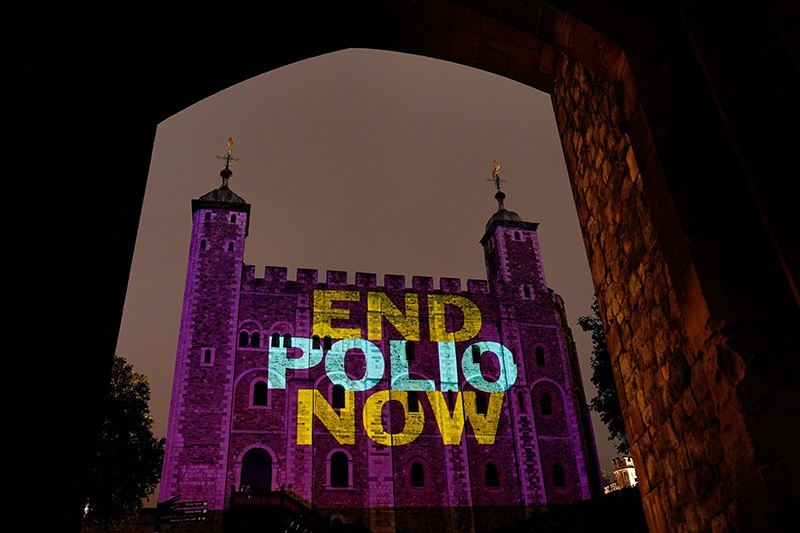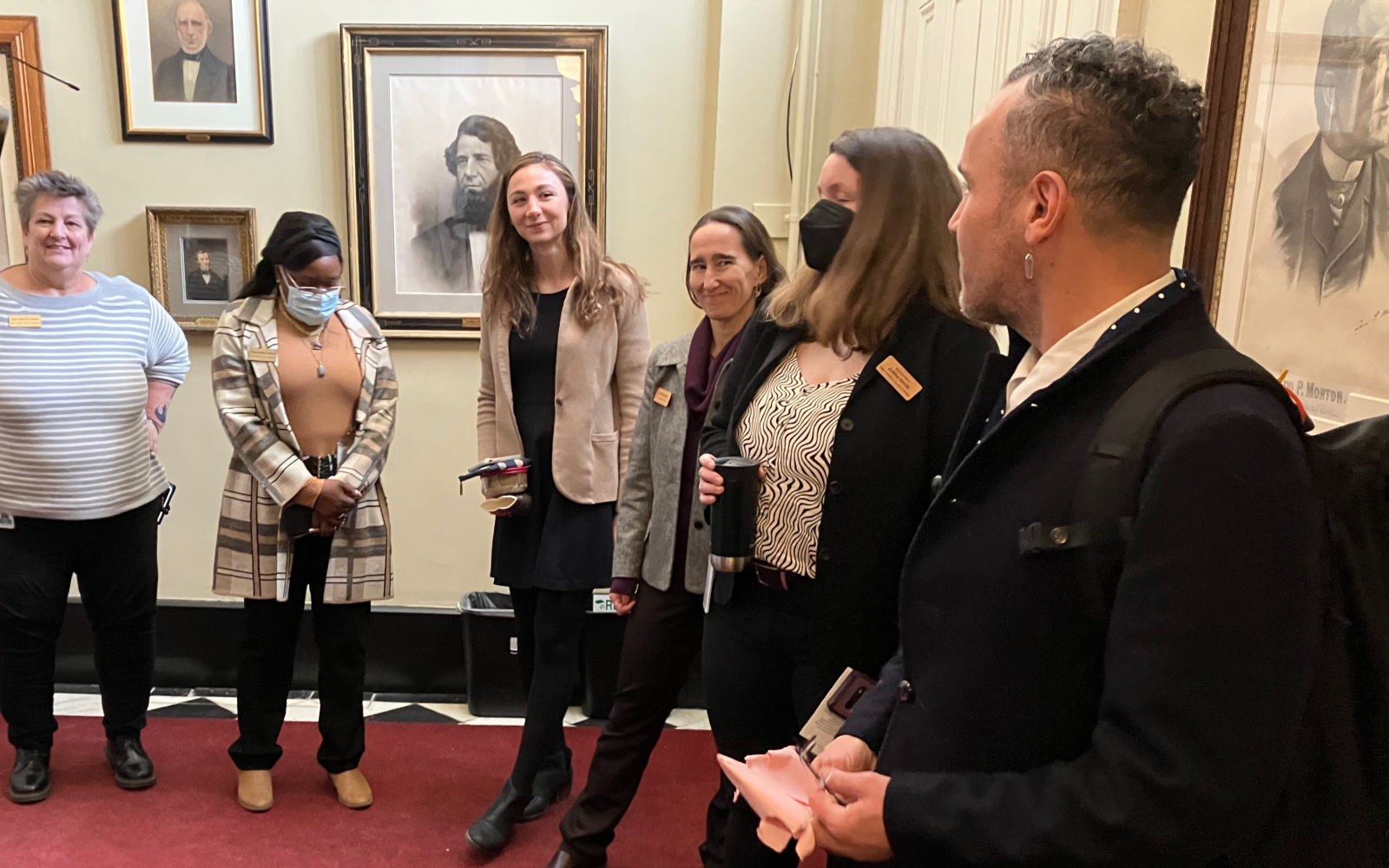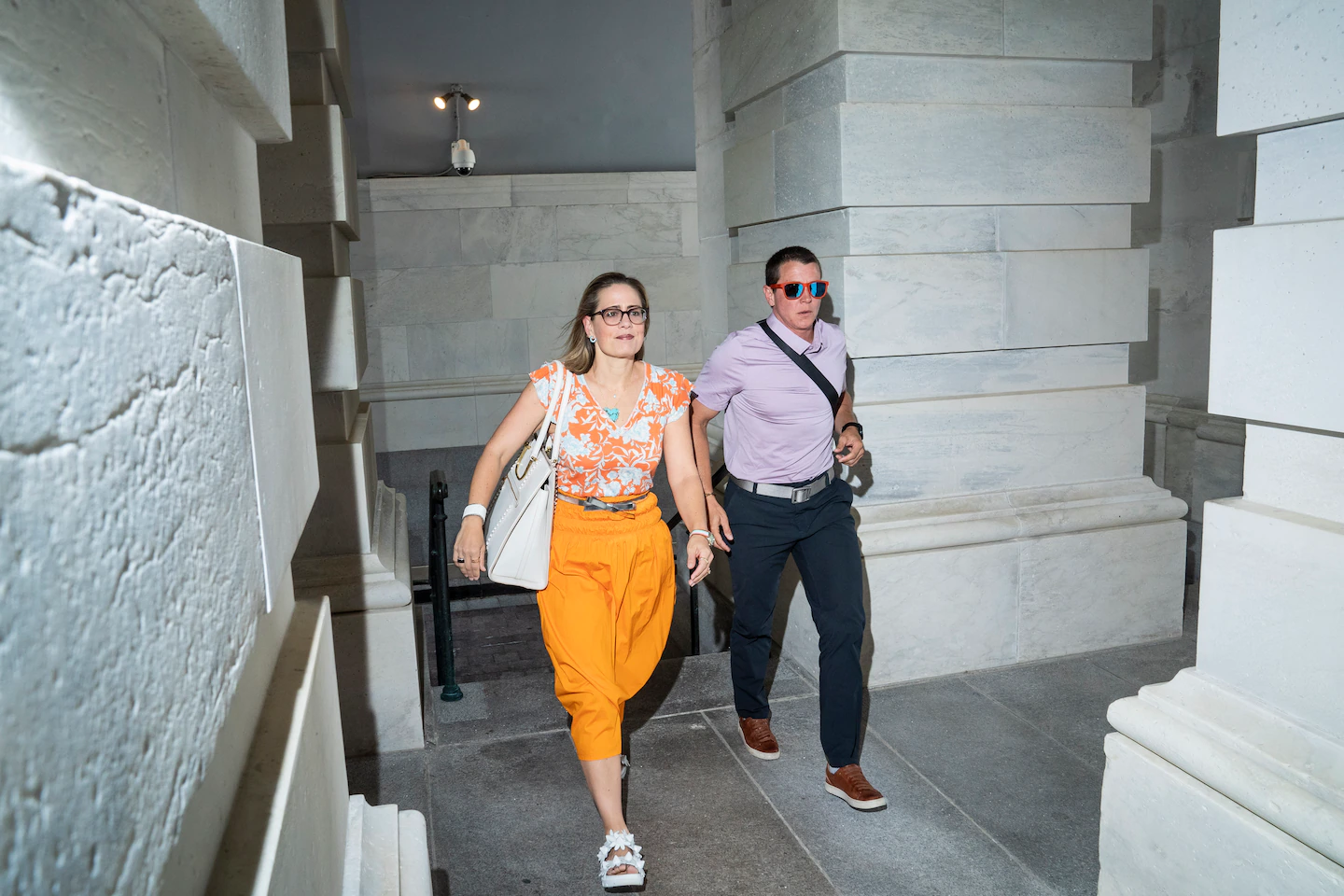[ad_1]
United Kingdom health officials are urging people to make sure they are vaccinated against polio, after several sewage samples in London tested positive for the poliovirus towards the end of June.
The UK Health Security Agency (UKHSA), a public-health body, said a poliovirus strain was detected during routine surveillance of wastewater in February. A mutated version of the same strain was picked up again in the following months, the agency added, suggesting the virus has spread between individuals, allowing it to evolve.
This virus is called ‘vaccine-derived’ poliovirus. It is so-called because it is a strain of (weakened) poliovirus that would have originally been found in oral polio vaccines, but has changed over time to behave more like a ‘wild’ type, or naturally-occurring poliovirus. Vaccine-derived poliovirus can spread through faeces or respiratory secretions. On rare occasions it can infect the nervous system, causing paralysis and breathing problems in unvaccinated people.
No people with symptoms of polio — including paralysis — have been reported so far, but health authorities are asking doctors to look out for, and report, any symptoms of the disease.
The last case of wild polio contracted in the United Kingdom was in 1984, and the country was declared polio-free in 2003, but the virus still circulates in some parts of the world. Nature explores what the resurgence of polio in the country means.
Why is there polio circulating in London sewers?
Traces of unrelated vaccine-like polioviruses are found every year in UK sewage samples. These detections typically occur when people vaccinated in other countries with a weakened form of the poliovirus return or travel to the country and shed the weakened live virus in their stool for a few weeks.
However, the viruses detected since February are different. They were related to one another and contained mutations suggesting that the virus was spreading from person to person — probably through poor hand hygiene.
According to the UKHSA, there might have been some spread between “closely-linked individuals” who are now shedding the poliovirus strain in their faeces. “Investigations will aim to establish if any community transmission is occurring,” the agency said in a press release.
Should people be alarmed?
Scientists say that, at the moment, there’s no reason to panic. The form of virus that was detected in wastewater poses a low risk to health: vaccination easily prevents the disease it causes.
Children are routinely vaccinated against polio. According to the World Health Organization (WHO) Global Polio Eradication Initiative (GPEI), 86% of people in London are vaccinated against polio. However, a drop in vaccination uptake during the COVID-19 pandemic could allow the virus to keep circulating. A report this year by the UKHSA found that, in parts of west London, only 35% of teenagers had received their polio booster in 2020–21.
The COVID-19 pandemic has hindered routine vaccinations, which include polio immunization, says Kathleen O’Reilly, an epidemiologist at the London School of Hygiene & Tropical Medicine. The primary course of immunization against polio is combined with vaccinations against other diseases, such as tetanus and whooping cough, so children who missed their polio vaccination are probably vulnerable to other infectious diseases, O’Reilly says. “In some communities, [children] might have also missed the measles vaccine, so this is an early warning of other vaccine-preventable diseases potentially being a problem.”
The detection of vaccine-derived poliovirus in London, she adds, emphasizes the need to invest in vaccination efforts and the importance of wastewater surveillance.
Is polio on the rise globally?
Although wild polio is declining, with only Afghanistan and Pakistan still reporting cases, there have been several outbreaks of the vaccine-derived form of the virus in recent years — with a peak in 2020, when more than 1,100 cases of vaccine-derived polio were reported.
At the beginning of the COVID-19 pandemic, the GPEI paused its polio-eradication activities for a few months, says Michel Zaffran, who retired as head of the GPEI last year. “During that time, the viruses were able to circulate undetected,” he says.
Since 2021, however, the number of vaccine-derived polio cases has been declining. In the past year, 18 countries have reported at least one case of vaccine-derived polio. Regions including south central Somalia and northern Nigeria are outbreak hotspots, says Oliver Rosenbauer, communications officer at the GPEI. “That’s also where you have the highest proportion of children who have never been immunized,” he says.
Because outbreaks can be brought under control with immunization, countries should continue to vaccinate as many people as possible, Rosenbauer says.
How can polio be wiped out worldwide?
The world has spent more than US$17 billion over three decades in an effort to eradicate the virus through vaccination campaigns. In late 2020, the WHO granted emergency approval to a modified vaccine, called nOPV2, to stop outbreaks of circulating vaccine-derived poliovirus in African and East Mediterranean countries. The virus in that vaccine has been genetically engineered to prevent it from becoming harmful.
According to the GPEI, more than 300 million doses of nOPV2 have been administered in 15 countries since March 2021. The vaccine “is a tool that we are all very excited about”, says Ananda Bandyopadhyay, a public-health epidemiologist who conducts polio research at the Bill & Melinda Gates Foundation in Seattle, Washington.
The new vaccine successfully ended a polio outbreak that left 34 children paralysed in Tajikistan. But “a vaccine is of no use if it is sitting in a vial”, says Bandyopadhyay, who co-leads the nOPV2 working group at GPEI. “What really makes a difference is vaccination coverage.”
Global polio-eradication campaigns face challenges including vaccine hesitancy, political unrest and a lack of adequate health infrastructure. To end polio, Bandyopadhyay says, the global community should provide support for low income countries to buy vaccines, enhance surveillance and enable front-line health workers to deliver vaccines to every child.
Until polio is wiped out worldwide, all countries are at risk of a resurgence, he says. “Polio can be a plane ride away, if it is out there somewhere.”
[ad_2]
Source link




